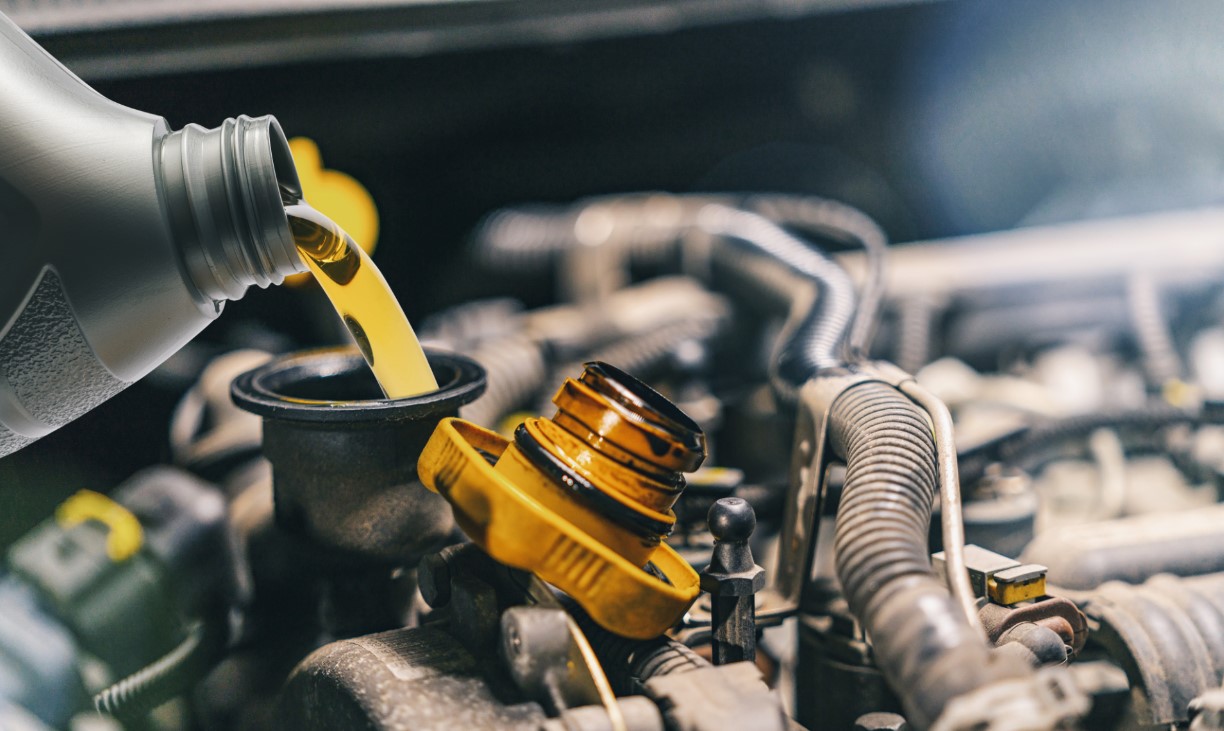Schedule for an affordable Oil Change Lockhart service now.
Schedule for an affordable Oil Change Lockhart service now.
Blog Article
How an Oil Change Enhances Fuel Performance and Protects Your Automobile
Normal oil adjustments are an important aspect of vehicle maintenance that can considerably enhance gas effectiveness and safeguard engine honesty. By changing old, contaminated oil with high-quality alternatives, friction among engine components is minimized, leading to boosted functional efficiency and gas intake.
Value of Regular Oil Adjustments
Routine oil changes are crucial for preserving the longevity and efficiency of any lorry. Engine oil acts as a crucial lubricating substance, decreasing rubbing between relocating parts and protecting against extreme wear. Over time, oil breaks down as a result of exposure to warmth, dampness, and pollutants, which endangers its ability to secure the engine. Neglecting oil modifications can lead to a host of problems, consisting of engine overheating, minimized fuel performance, and eventually, costly fixings.
Moreover, regular oil modifications contribute to ideal engine performance. Fresh oil ensures that the engine operates smoothly, permitting for better acceleration and responsiveness.
Exactly How Oil High Quality Influences Efficiency
How does oil quality influence the general performance of an engine? The quality of engine oil plays a crucial duty in maintaining optimum engine feature.
Furthermore, quality oil has ingredients that boost its performance under differing problems. These ingredients can include cleaning agents, which assist to clean engine parts and stop sludge accumulation, and anti-wear representatives, which secure important surfaces during high-stress scenarios. The thickness of the oil is also essential; it has to remain secure across a range of temperature levels to make sure proper circulation and lubrication.
Using below average or abject oil can lead to lessened performance, resulting in enhanced engine wear and prospective getting too hot. Regularly inspecting and transforming the oil according to manufacturer specs makes sure that the engine runs at its ideal, safeguarding your investment in your car.

Influence On Fuel Effectiveness
Fuel effectiveness is substantially affected by the top quality of engine oil used in an automobile. Top quality engine oil assists in smoother engine operation by lowering rubbing between moving parts. This reduction in rubbing is critical, as it permits the engine to run a lot more efficiently, eventually leading to enhanced gas consumption. When the engine oil is fresh and of remarkable top quality, it maintains ideal thickness, ensuring that the oil flows appropriately and reaches all needed parts.
Conversely, deteriorated or low-grade oil can develop raised rubbing and resistance within the engine. This not only hinders performance yet also forces the engine to work harder, leading to higher fuel usage. Routine oil modifications aid maintain the oil's integrity, guaranteeing that it remains effective in lubricating engine parts and avoiding buildup of damaging down payments.

Protecting Against Engine Wear and Tear
Keeping optimal engine performance is largely depending on preventing damage, which can considerably expand the lifespan of the vehicle. Regular oil changes play a vital role in this preventive upkeep technique. Engine oil functions as a lube, decreasing friction between moving components, which aids to alleviate wear. Gradually, oil can become infected with dust, debris, and metal particles, diminishing its effectiveness.
When oil is not changed consistently, it can result in raised rubbing, overheating, and eventually, engine failure. Fresh oil, on the various other hand, has ingredients that protect engine parts from rust and wear, guaranteeing smoother procedure.
In enhancement to the high quality of oil, following the maker's recommended informative post oil adjustment intervals is essential. These periods are made to align with the automobile's details requirements based on driving routines and problems. Motorists should also understand factors that may increase engine wear, such as extreme temperature levels, towing, and stop-and-go web traffic. By focusing on regular oil adjustments, automobile proprietors can substantially lower the danger of engine wear, boost performance, and inevitably save on expensive repairs, therefore maintaining the car's worth gradually.
Signs Your Oil Needs Altering
Normal oil adjustments are not only important for avoiding engine wear however likewise for identifying when your oil calls for substitute. A number of indications indicate that it may be time for an oil modification, and being attentive click this site about these can help preserve your car's efficiency.

Among one of the most usual indications is the oil adjustment light on your control panel. Oil Change Lockhart. If this light illuminates, it is a timely to inspect your oil levels and think about a modification. Furthermore, if you observe a dark, sandy appearance when evaluating the oil on the dipstick, it recommends that the oil has come to be contaminated and is less effective in lubricating the engine components
Uncommon engine sounds, such as knocking or ticking, might additionally signify that the oil is stopping working to do its tasks, possibly causing severe engine damage. Finally, if you discover a click site burning oil odor or see oil areas under your car, these can indicate leakages or excessive intake, requiring an instant oil adjustment.
Verdict
The usage of top notch, fresh oil lessens friction among engine components, decreasing power loss and promoting smoother operation. Prompt oil modifications prevent the buildup of hazardous impurities that contribute to engine wear and getting too hot.
Report this page